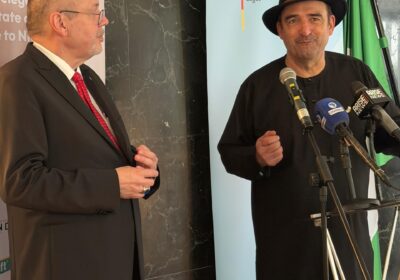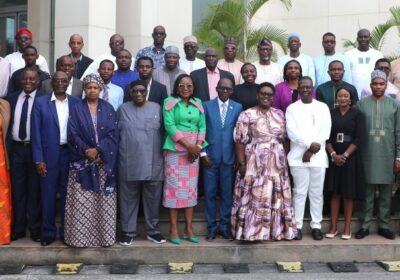Shifting Dynamics in West Africa: Togo to join Membership of Sahel Alliance (AES)
By Raymond Enoch
In a significant shift in West African geopolitics, Togo confirmed its intention to join the Alliance of Sahel States (AES), a regional bloc currently composed of Burkina Faso, Mali, and Niger.
The announcement, made by Togo’s Minister of Foreign Affairs, Professor Robert Dussey, on March 11, 2025, indicates an evolving relationships between ECOWAS (Economic Community of West African States) and the Sahel countries. This move signals not only a change in Togo’s regional alignment but also underlines Lomé’s desire to assert more control over its economic and security futures, but also subversion of democratic governance narratives championed by the ECOWAS.
Togo’s decision to join the AES is rooted in a desire to bolster regional cooperation, assert sovereignty, and provide vital economic opportunities. In a Facebook post detailing the rationale behind this approach, Minister Dussey emphasized that Togo’s accession to the AES is a well-considered decision aimed at ensuring the collective development and security of the region.
Key motivation revolves around access to the sea. While the Sahelian countries of Mali, Niger, and Burkina Faso are landlocked, Togo’s deep-water port of Lomé provides a critical maritime gateway that could benefit its neighbors. With Lomé’s bustling port serving as a crucial logistical hub for West Africa, Togo could play a central role in facilitating the Sahel’s access to international trade routes, which is vital for their economic growth.
The second motivating factor is political unity. By joining the AES, Togo hopes to consolidate a united front with its Sahelian partners, particularly in addressing the region’s pressing security and economic challenges. This alignment stands in contrast to the so to say political divide that has been widening between ECOWAS and Sahel states in recent years, as the latter increasingly seeks to distance itself from what they perceive as allegedly external control or influence.
The third reason is centered around Togo’s commitment to regional trade and economic cooperation. Already, Togo has been engaging with the AES through initiatives such as the July 2024 meeting of AES Customs Directors in Niamey, where Togo’s customs officials committed to facilitating cross-border trade. Togo sees this as an essential step in enhancing regional economic interconnectivity and ensuring that the landlocked Sahelian states can access crucial coastal trade routes.
Finally, Minister Dussey underscored Togo’s desire to move beyond colonial legacies and prioritize African-led solutions. This aligns with the broader goal of asserting African sovereignty, allowing Togo to reduce dependence on foreign powers and bolster internal capacity.
Beyond trade and politics, Togo is also positioning itself as a key military player in the region. In May 2024, the Togolese military participated in joint maneuvers in Tillia, Niger, alongside forces from Burkina Faso, Mali, Niger, and Chad. These exercises, which focused on countering terrorism, demonstrated an increasing military interoperability among the Sahelian states, despite the absence of a formal military alliance. This growing security cooperation is crucial, given the ongoing challenges posed by insurgent groups in the region.
However, Togo’s geopolitical strategy remains nuanced. Despite its closer alignment with the AES, the country continues to play a balancing act within ECOWAS, maintaining diplomatic ties and acting as a mediator. A notable example of this diplomatic role was in 2023 when Togo successfully negotiated the release of 49 Ivorian soldiers detained in Mali, even as Bamako withdrew from ECOWAS.
While Togo’s commitment to joining the AES is clear, the process will require navigating complex political landscapes, both regionally and internationally. The move could potentially escalate tensions within ECOWAS, particularly given the bloc’s current disagreements with the Sahelian countries. However, for Togo, the AES represents an opportunity to strengthen its sovereignty, enhance regional cooperation, and expand economic ties with its neighbors.
As the situation unfolds , Togo’s position will likely continue to influence the shifting dynamics of West African geopolitics, particularly as the Sahel region increasingly pursues a path of self-determined progress and security.








